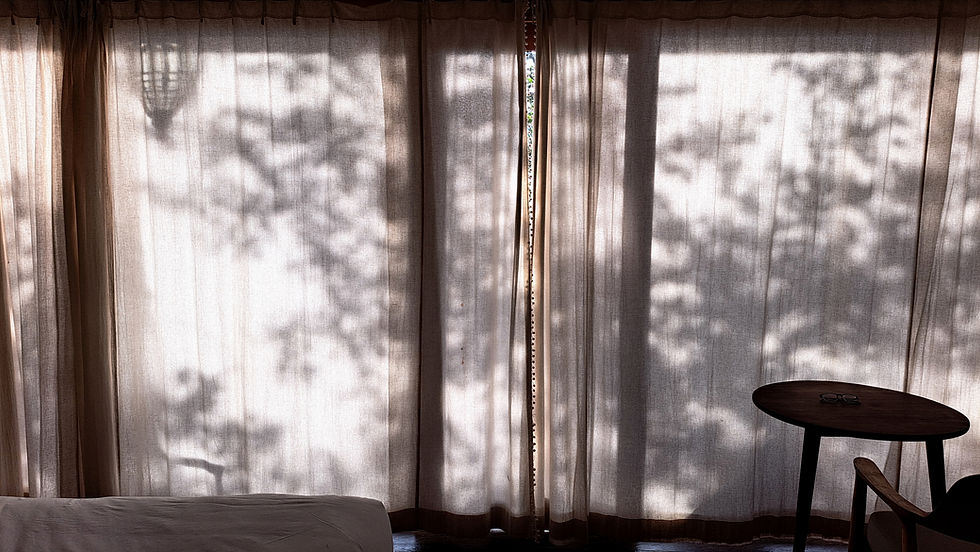what you leave behind is what you take with you
- hamid ebadi
- Nov 10, 2023
- 2 min read
Updated: Dec 6, 2023
What you see on this image is a view over the valley and the rolling hills on the last day of our silent at Karuna Center in Monchique a few days ago. Whenever I pack my bags to leave Karuna I tell myself this may well be the last time I'll come here again. This sentiment grows stronger with time. As you age the sense of impermanence becomes ever more a tangible reality that you no longer simply apprehend but feel ever more deeply in body and mind.
Being an uprooted person and a wanderer all your life, displacements started at the age of six for me and have not ceased since, in the beginning not of my own choosing but later when I could decide on where to go it felt more and more that erring had chosen me, non-attachment to places is then not necessarily a life lesson you need to learn since it emerges as the very given of your existence.
Rilke's words: It is strange to no longer inhabit the earth, is no longer an engima you need to fathom, it is what is open and evident right before you, while Tchuang-tzi's saying: The one who comes from nowhere has their dwelling place wherever they, becomes naturally the existential horizon where life's journey of exploration unfolds.
What begins as feeling a curse, the sense of not belonging anywhere, being an outsider, an alien ( the place I had to go to in Maidstone, England to apply for a visa renewal at age 16 was then called the Aliens Office ), the sense of being in exile has, at least for me, perhaps in great part due to decades of practice of zazen and engaging the wayless Way, has developed into a sense of levity, a sense of not needing to belong anywhere anymore for you begin to understand and embody the deeper meaning of these other words of Rilke, himself a true wanderer: Denn Bleiben is nirgends / for to stay is to be nowhere at all.
The places that mean the most to wanderers, to those who've never had a settled abode, for me mostly places related to intense periods of practice, earlier Ei-Tai Ji, my master's temple in Alpes-de-Haute Provence and nowadays Karuna in Serra de Monchique come to mind, are the places you never quite leave behind and cannot leave behind as they become over the years an indissociable part of you.
They only become a part of you, a part of your innermost scenery, as you leave more and more of yourself behind in them.
We only take with us what we learn to leave behind.
This is one of the paradoxes of life and of practice that we explored in the last series of talks in our last retreat based on Master Seppo's saying. When he was asked what state he had reached to have found rest he replied: coming with empty hands, going with empty hands.
Taking only with us what we leave behind is learning the words of emptiness as the heart becomes more intimate with silence.






Comments